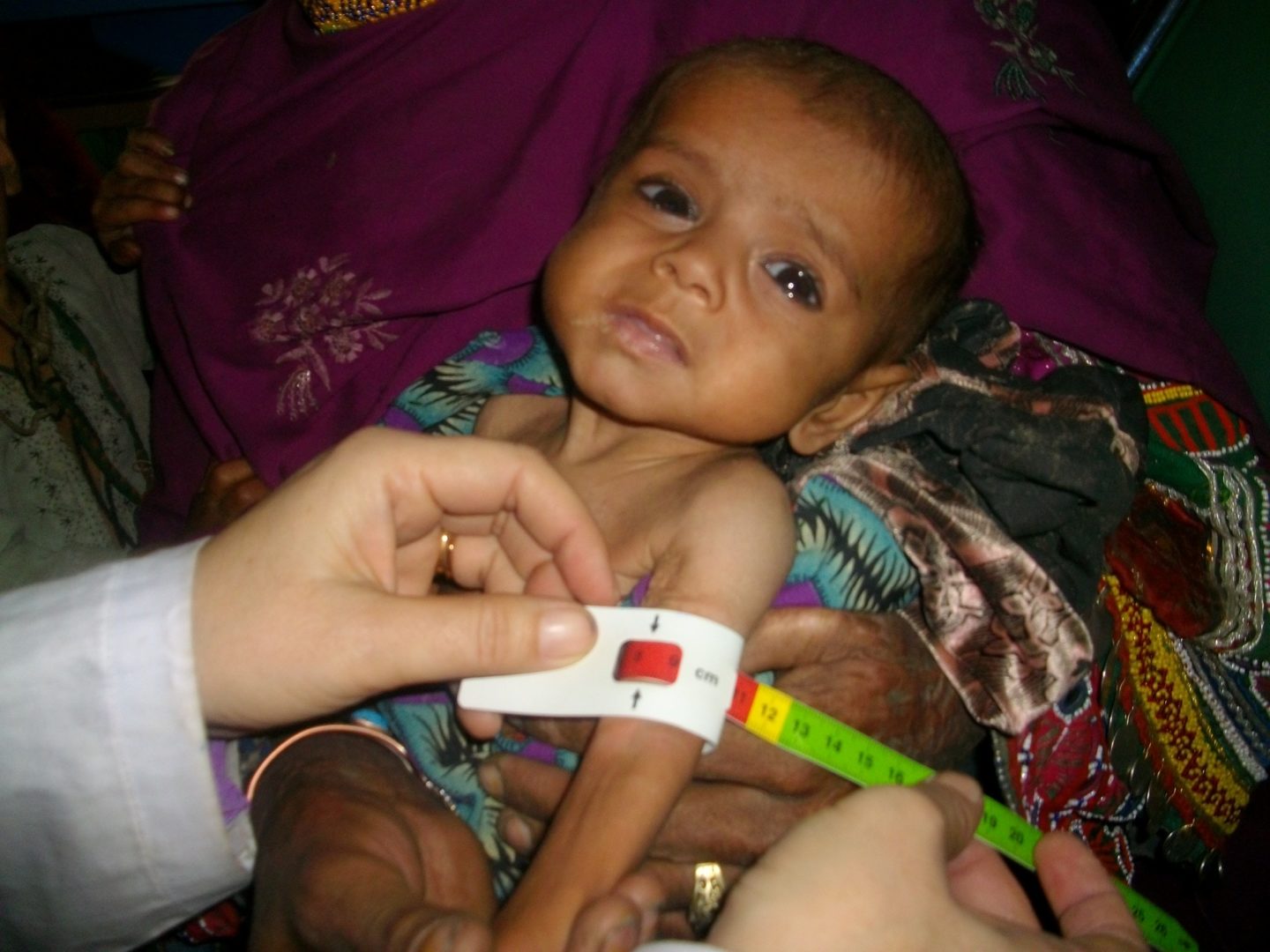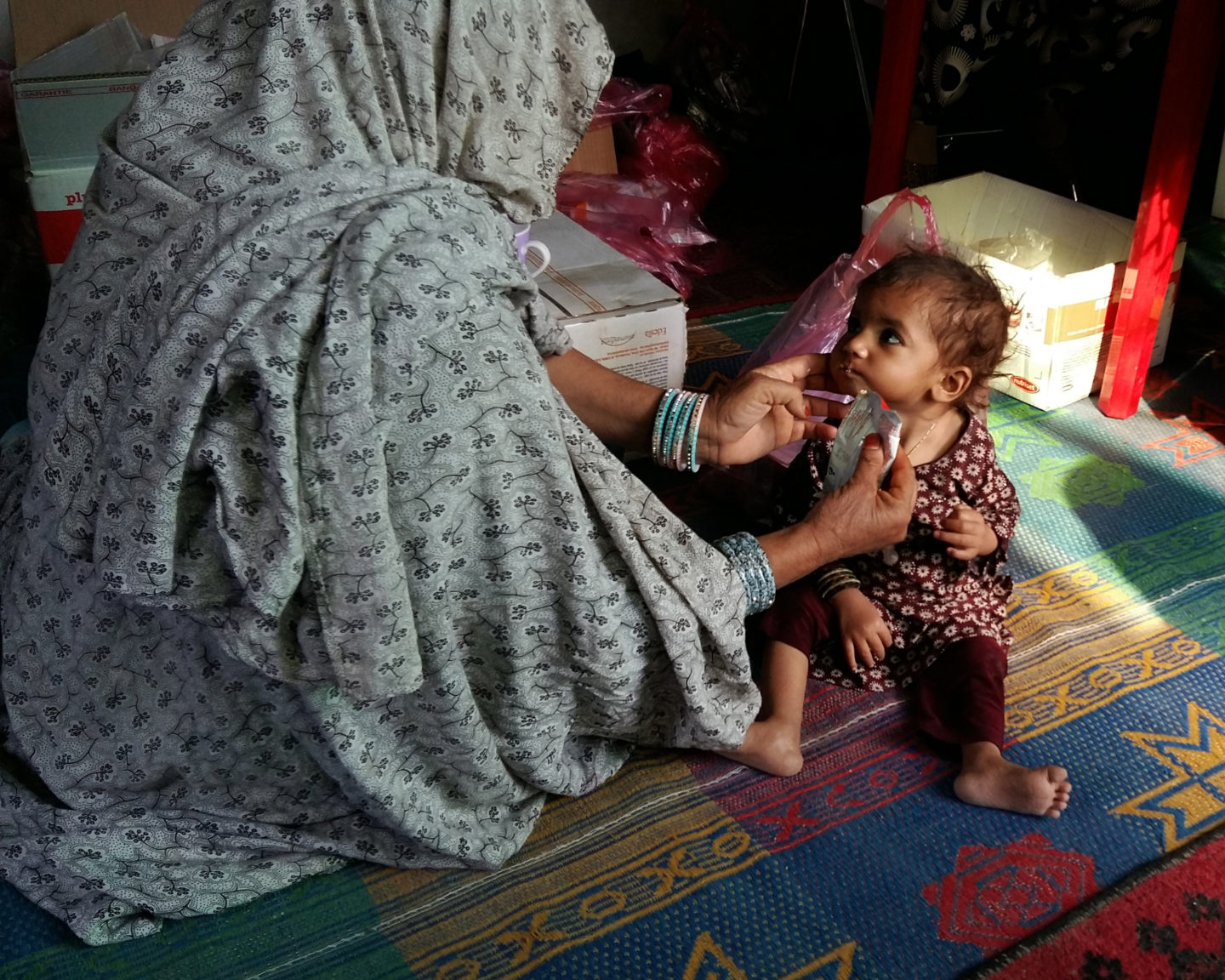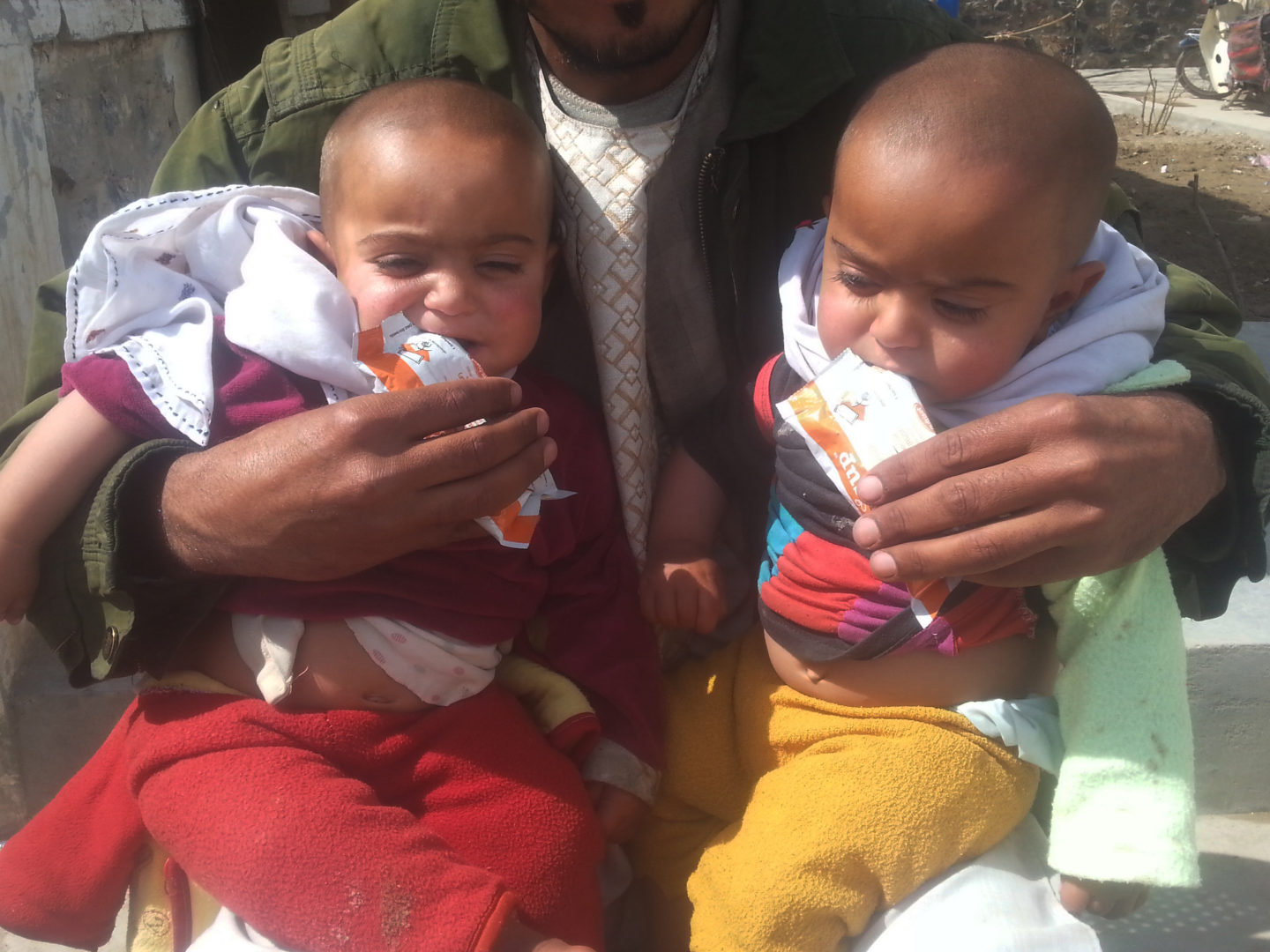Stories from Afghanistan
If We Don’t Go, Who Will?
A boy eats nourishing Plumpy’Nut at a Medair nutrition clinic.
Latifa[1] shrugs off her white nursing jacket, readjusts her hijab, and sits down next to me. “I am so happy to talk to you,” she says, patting my hand and smiling. “We need to share about the work we are doing, it is too important not to.”
Latifa is a nurse with one of Medair’s five mobile nutrition teams in Southern Afghanistan, which provide essential nutrition services to communities with high levels of malnutrition among children and pregnant and breastfeeding women.
 A severely malnourished child receives an upper arm measurement (MUAC) screening for malnutrition.
A severely malnourished child receives an upper arm measurement (MUAC) screening for malnutrition.
Medair’s nutrition team travel to 37 different locations around Southern Afghanistan, providing mobile life-saving emergency treatment to people who have no other access to nutrition or health services. “We set up the clinics while people wait outside,” says Latifa. “We provide them with important messages about feeding their babies and good hygiene. We then do assessments and decide on the treatment. We then pack down the clinic and leave.”
Since the project began, 62,997 children under five have been screened for acute malnutrition, with 12,608 children admitted for treatment. “I love meeting the people we are helping and seeing the hope they have, it is my favourite thing about being a nurse,” adds Latifa.
 A Medair nurse feeds an 18-month-old girl at a Medair clinic
A Medair nurse feeds an 18-month-old girl at a Medair clinic
Latifa has just returned from an IDP camp two hours away, where she spent the morning providing nutrition services. “Medair is the only organisation working in these faraway places,” says Latifa. “But if we do not go, who will? Sometimes it can be frightening if security incidents happen, but actually it is more frustrating when we cannot visit the communities because of conflict.”
Given the volatile security context in Southern Afghanistan, access to remote communities can change at the last minute. “It is not the first time I’ve worked in dangerous areas, this is Afghanistan and security is always a problem. But if I say I will not go, then who does the responsibility get passed onto? There is no one else who will face the challenges Medair does. When I see the children I am helping, and speak to the caregivers, I know it is the right thing to do because we are working for humanity.”
 Ali and Ahmad both recovered well in the Medair nutrition programme.
Ali and Ahmad both recovered well in the Medair nutrition programme.
Building strong relationships with the community has helped Latifa and her colleagues gain acceptance to provide the nutrition services. “When we welcome people to a clinic, it is our responsibility to give them the best possible care. I tell people there is no difference between you and me; you are human, I am human, and we must help each other. They see our behaviour and the way we treat people, and learn to trust us and the messages we bring. They often start by bringing one child. The next time they bring two children. Then they start telling other people in their village to come—they are marketing the treatment programme for us!”
As Latifa works to save children’s lives, she thinks about her own son at home. “I see malnourished children every day. I think they could be my baby. They don’t have any services, so I must provide the best care, and then with treatment, we see them grow up like a flower.
“Whenever my young son sees me put on my white nurse’s jacket to go to work, he says, ‘Can I go with you to the office, Mother?’ He even tries to wear a white jacket like me sometimes! It is important he sees that we must help other people. Now he tells me he wants to become a doctor, which makes me very happy.”
As we finish our chat, Latifa gives me a direct message for all the people who support Medair. “People living in these faraway areas do not have access to hospitals, nutrition services, or even food. They are human but they don’t have these basic things. They talk about how they can survive and nothing more. Please keep on funding this project!”
Thank you so much for your support. Your gifts are saving lives in southern Afghanistan. You can join the journey with Medair today.
In Afghanistan, Medair provides vulnerable people with health and nutrition services, safe drinking water, latrines, hygiene support, vegetable gardens, and agricultural assistance. Medair’s work in Afghanistan is supported by the Mennonite Central Committee of Canada, Global Affairs Canada, the Common Humanitarian Fund, the United States Agency for International Development , and generous private donors.
This content was produced with resources gathered by Medair field and headquarters staff. The views expressed herein are those solely of Medair and should not be taken, in any way, to reflect the official opinion of any other organisation.
[1] Name changed and no photos shown for security purposes.
